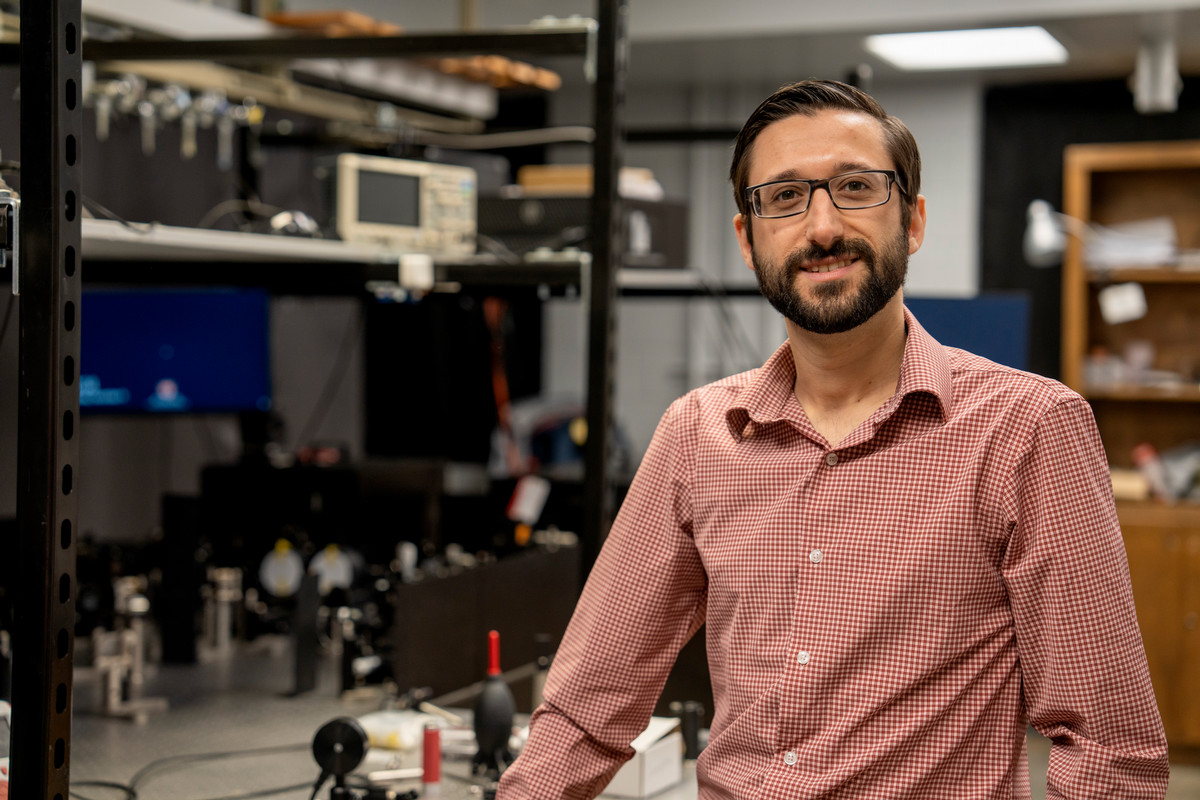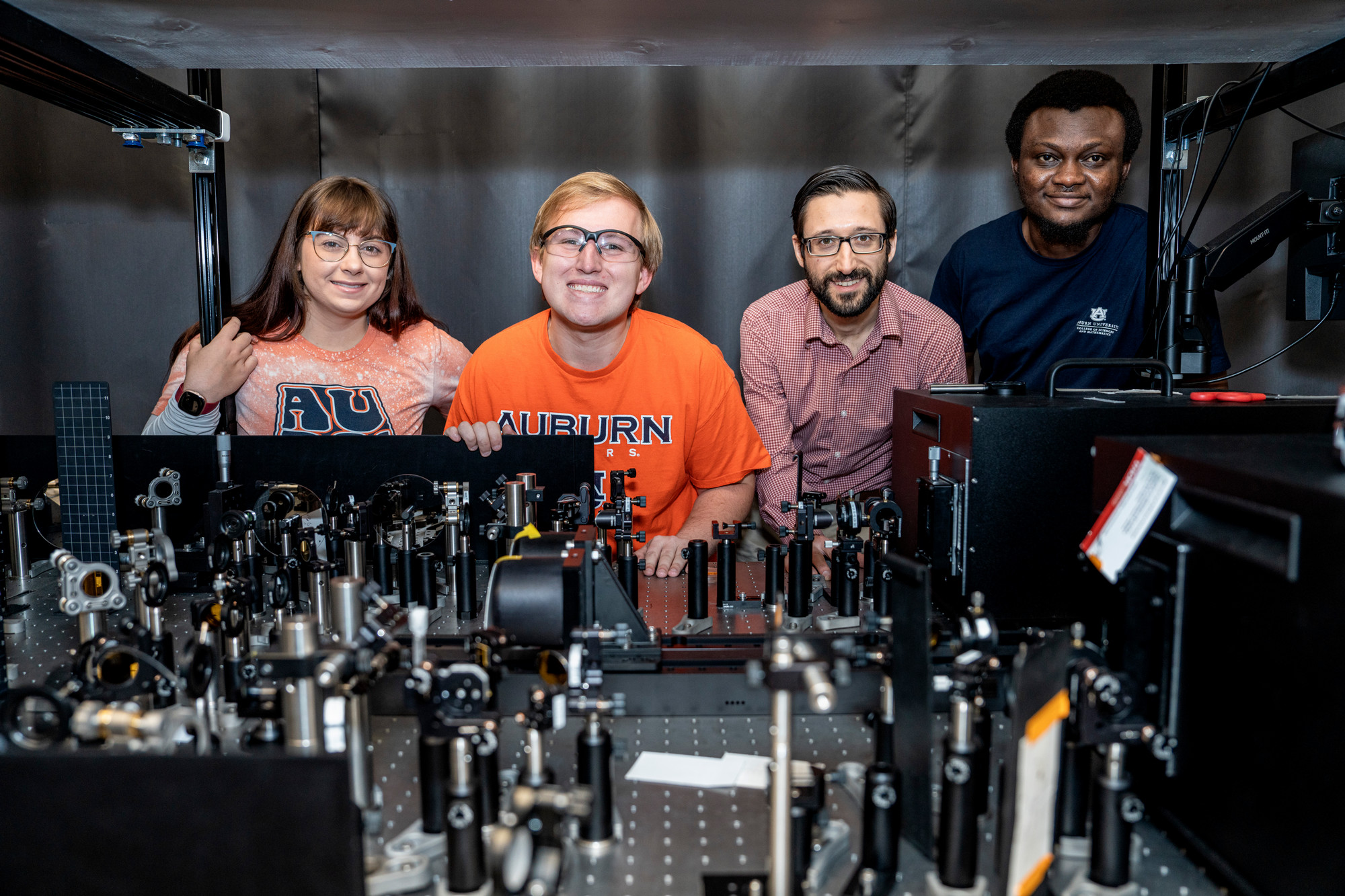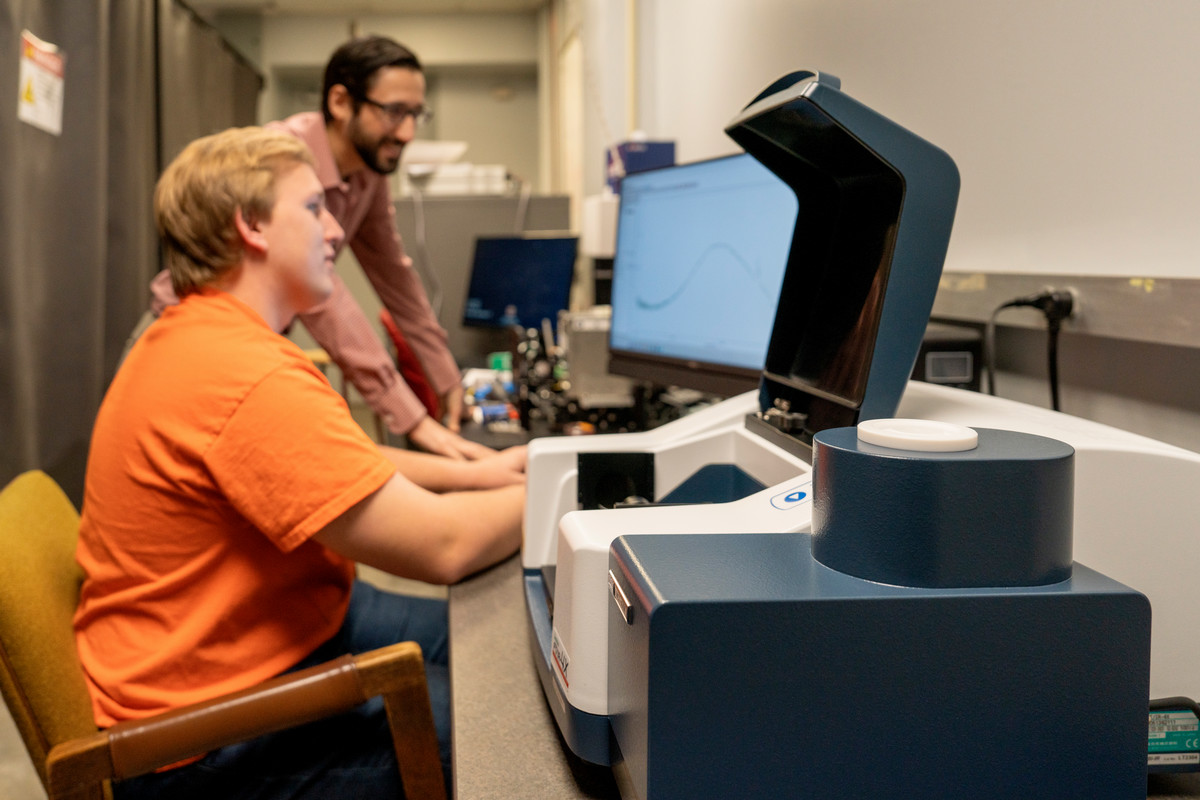COSAM News Articles 2023 December Auburn chemist seeks to expand the capabilities of infrared spectroscopy
Auburn chemist seeks to expand the capabilities of infrared spectroscopy
For Chris Grieco, an assistant professor in Auburn University’s Department of Chemistry and Biochemistry, he is seeking to develop a novel measurement approach using a Fourier Transform Infrared (FTIR) Spectrometer through a $30,000 grant from the Spectroscopy Society of Pittsburg.
“We are pushing the limits of spectroscopy technology through this innovative method, which will directly let us see how electrons are moving and interacting as well as influencing the overall structure of the sample material,” said Grieco. “It will provide critical information for the design of next-generation electrochemical materials.”
He used the funding to purchase a widely-used instrument, an FTIR spectrometer, and then combined it a unique way with electrical devices that inject electrons directly into the sample. The equipment will be housed in the Chemistry Building.
“We need new methods that can measure these electrochemical materials in action,” he added. “By thinking outside of the box and reimagining the capabilities of spectroscopy, we can create new techniques for learning how the materials behave in devices while in operation.”
Both undergraduate and graduate students in his lab, the Grieco Lab, will learn to operate the device.
“This equipment will train the next generation of scientists interested in solving emerging problems in electronic and electrochemical applications,” he said. “Students using the instrumentation are at the very heart of spectroscopy and at the interface of chemistry, physics, and engineering. This work has connections to scientific fields such as bioelectronics as well as more mainstream areas such as energy storage.”
What inspired Grieco to become a scientist? He always enjoyed the physical and analytical aspects of chemistry but became hooked on spectroscopy.
“Spectroscopy lets you use light as a tool to understand materials,” he said. “And I really like how you can apply spectroscopy techniques in creative ways to answer fundamental questions at the heart of practical applications, such as biomedical sensing and energy storage, that have real societal impacts,” he shared.
“I came to Auburn because of the high research activity where you can really conduct science at a world-class level,” said Grieco. “The Department of Chemistry and Biochemistry, in addition to the College of Sciences and Mathematics, supported my development of advanced laser spectroscopy instrumentation at the university that really sparked my excitement to become part of the faculty here.”
Latest Headlines
-
04/27/2024
-
04/23/2024
-
04/18/2024
-
04/18/2024
-
04/18/2024




